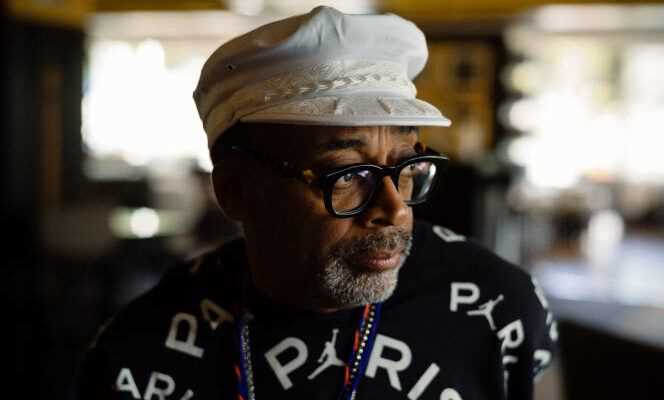Eighteen months ago, when the Cannes Film Festival presented the president of the jury of its 73e edition, Spike Lee was crowned with the success, critical and public, of BlacKkKlansman, which he presented in 2018 on the Croisette. The first Afro-descendant to hold this presidency, the director of Do The Right Thing (1989) was about to decide, with his colleagues, some of the best feature films of 2020.
Finally, it is the jury of the 74e edition chaired by Spike Lee. And the task that falls to him is not only to establish a prize list from a replete selection (twenty-four films, against the usual twenty), but also to restore faith. In the cinema in general, in its rituals in particular. Now – and this is one of the contradictions on which Spike Lee has built his art – this ardent activist, this tireless contributor to public debate, categorically refuses to pose as a model, let alone a prophet.
Lessons from the pandemic
On the morning of the Festival’s opening, Tuesday July 6, he was as affable as he was laconic when it came to drawing the cinematographic lessons of this pandemic period. He prefers to talk about his journey through the plague, which he devoted, among other things, to the making of a documentary series intended for the HBO Max platform. In eight hours, NYC Epicenters 9/11 → 2021½ will come back to the impact of the two disasters that the filmmaker’s city experienced, the 2001 attacks and the pandemic. “Everything has changed, thousands of people have lost their mother, their father, their spouse, without even being able to be with them. New York was the epicenter of this disaster. I will devote the first half of the series to this. The second will evoke September 11 and its aftermath, it will be broadcast for the twentieth anniversary of the attacks. “
“Since I’ve been making films, every decade a black man has won an Oscar. Each time, the journalists called me to ask me if Hollywood had changed ”
The period was also marked by the movement following the death of George Floyd in Minneapolis. “This murder, this lynching, awakened the whole world, beyond the black community”, he observes with a hint of optimism that he rarely sees. On a related theme, he notices that, “Today, when you are young and black and have talent, you have a good chance of finding work”. To immediately return to his usual caution: “Since I’ve been making films, every decade a black man has won an Oscar. Each time, reporters called me to ask if Hollywood had changed, and that upturn was followed by nine years of drought. I hope this time [depuis le triomphe de Moonlight aux Oscars en 2017], it will be different, that it is not just a fad. “
You have 39.23% of this article to read. The rest is for subscribers only.
